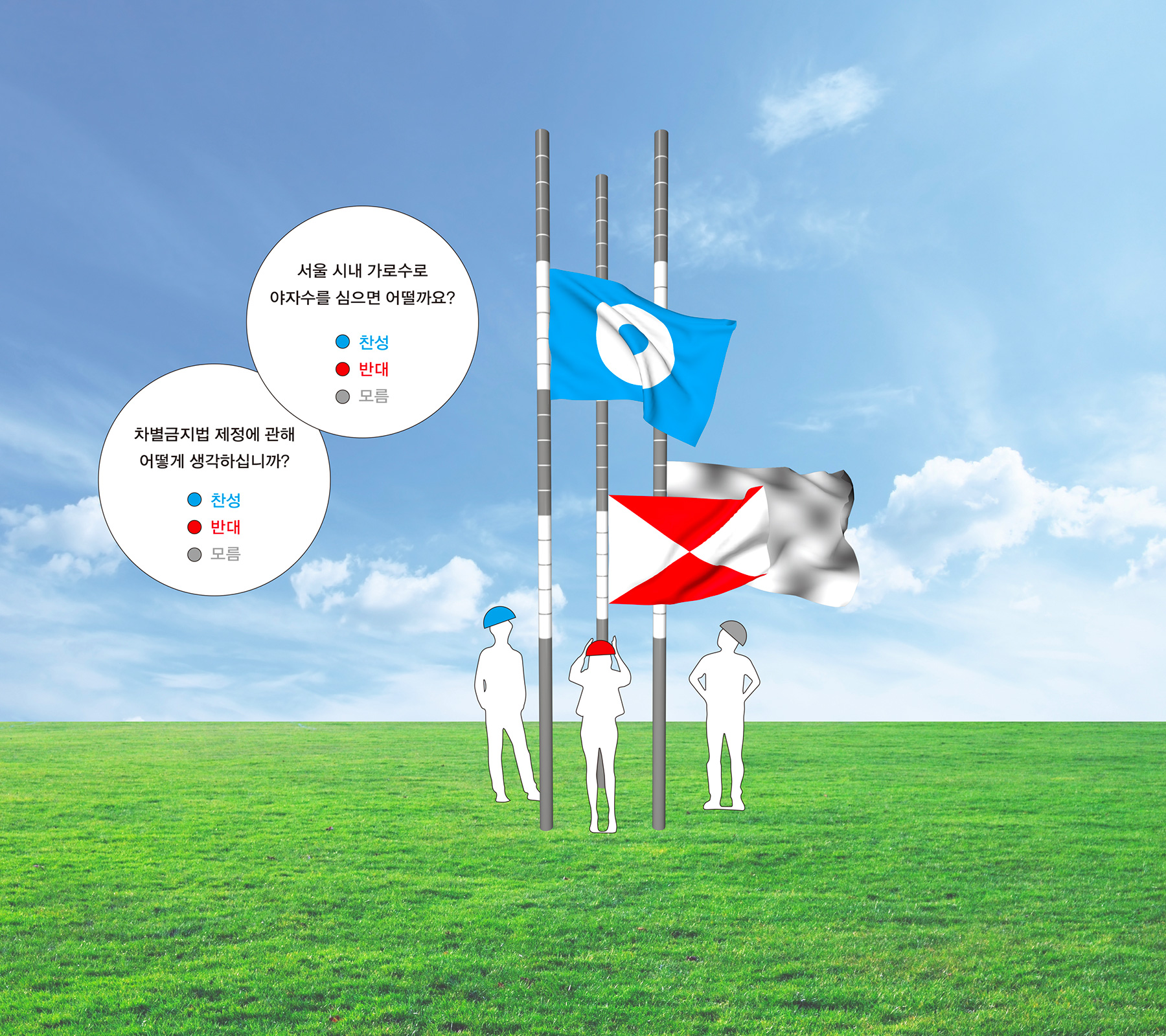


Yes / No / Don’t Know
concept for an artwork in a public space
This is a conceptual proposal for the public art project Today, organized by Seoul Metropolitan Government for a temporary artwork to be installed in the Seoul Square. The proposal was shortlisted but did not win the final popular vote. Following is from our proposal.
Opinion polling is a common practice to see the public’s view on certain issues. It is a tool for democracy, playing an important role in policy-making. It can also be used as part of a participatory system for public art.
Instead of a single object, Yes / No / Don’t Know is an open-ended program that involves a website, social media, and performances. The physical structure in the Seoul Square is merely a visible representation of the program.
For various historical moments from the March 1 Movement in 1919 to the recent “Candlelight Struggle,” the Seoul Square would provide a space for the people to spontaneously gather and express their thoughts. As a work to be completed and updated by the people’s participation, Yes / No / Don’t Know reflects the social and historical meaning of the place.
The public is invited to participate in a series of opinion polls posted on a website. The questions deal with various issues, from the social and political to the more poetic or speculative. The results are visualized by three flags in the Square, respectively representing positive, negative, and neutral or uncertain opinions, by their heights. The flags perform their traditional function of signaling messages, but they also symbolize the ebb and flow of public opinion by their wavy forms.
Each week, a new poll is announced. Each poll is written by a different contributor, who also publishes a text about the issue on the website. The results are posted on the website in real-time. The heights of the flags are adjusted every morning by three “performers,” each in charge of “yes,” “no,” and “don’t know.”
- Project type:
- proposal
- Commissioned by:
- Seoul Metropolitan Government